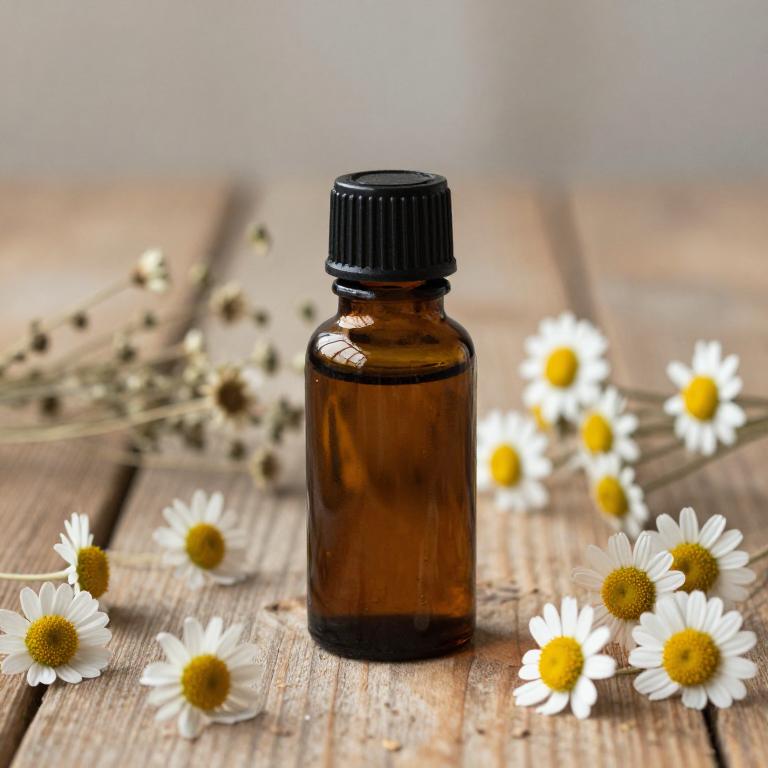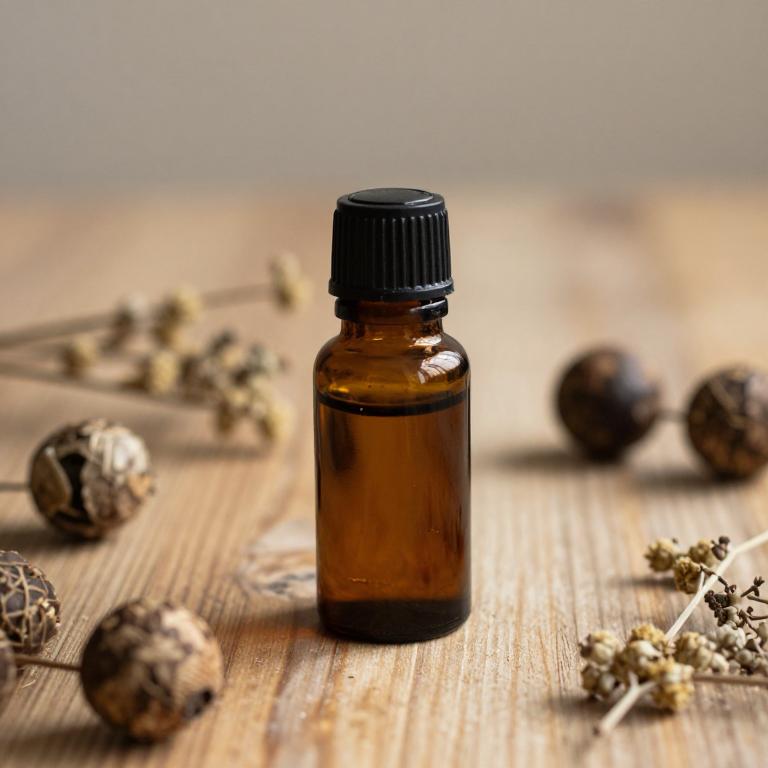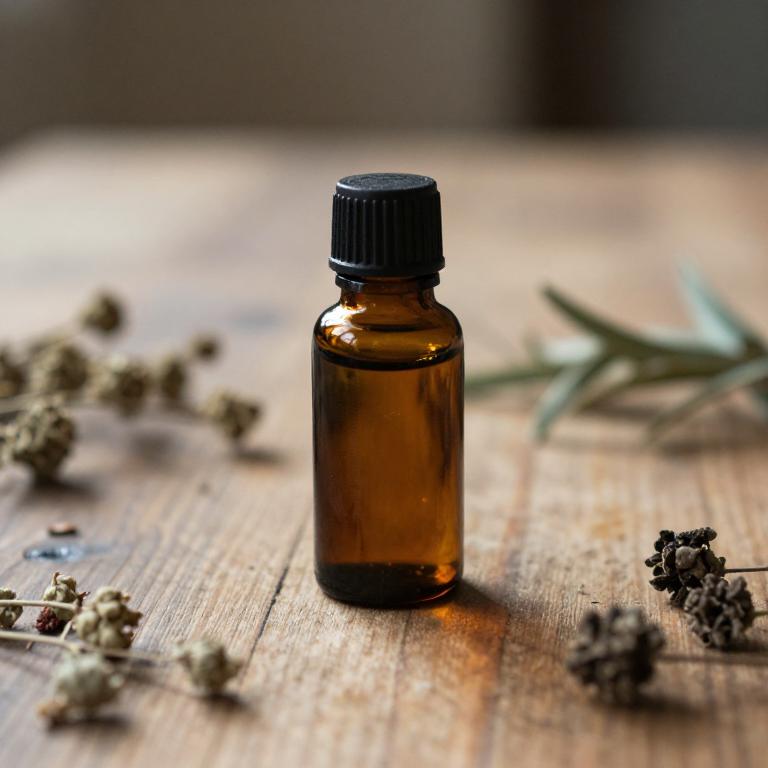10 Best Herbal Essential Oils For Pimples

Herbal essential oils, such as tea tree, lavender, and chamomile, are widely used for their natural antibacterial and anti-inflammatory properties, making them effective for treating pimples.
These oils can help reduce redness, swelling, and bacterial growth on the skin, which are common causes of acne. However, they should always be diluted with a carrier oil to avoid skin irritation, as undiluted essential oils can be too potent. Many people prefer using these oils as a natural alternative to conventional acne treatments, seeking fewer side effects and a holistic approach to skin care.
When used consistently and properly, herbal essential oils can be a valuable addition to a skincare routine aimed at clearing and maintaining clear skin.
Table of Contents
- 1. Salvia (Salvia officinalis)
- 2. Melaleuca (Melaleuca alternifolia)
- 3. Turmeric (Curcuma longa)
- 4. Ginger (Zingiber officinale)
- 5. English lavender (Lavandula angustifolia)
- 6. Rosemary (Rosmarinus officinalis)
- 7. German chamomile (Chamomilla recutita)
- 8. Eucalyptus (Eucalyptus globulus)
- 9. Sandalwood (Santalum album)
- 10. Lemon grass (Cymbopogon citratus)
1. Salvia (Salvia officinalis)

Salvia officinalis, commonly known as sage, is a medicinal herb whose essential oil has been traditionally used for its antibacterial and anti-inflammatory properties.
The essential oil of sage contains compounds such as thujone and camphor, which may help in reducing the bacteria that contribute to acne formation. When applied topically, sage essential oil can help to soothe inflamed skin and reduce the appearance of pimples. However, it is important to dilute the oil with a carrier oil to avoid skin irritation.
Due to its potent nature, it is advisable to perform a patch test before using sage essential oil on a larger area of the skin.
2. Melaleuca (Melaleuca alternifolia)

Melaleuca alternifolia, commonly known as tea tree oil, is a popular essential oil derived from the leaves of the Melaleuca alternifolia plant, native to Australia.
It is widely recognized for its antimicrobial, anti-inflammatory, and antifungal properties, making it a favored natural remedy for acne and pimples. When diluted properly, tea tree oil can help reduce the bacteria that contribute to acne, such as Propionibacterium acnes, and soothe inflamed skin. Its ability to penetrate the skin and target the root causes of pimples makes it an effective alternative to conventional acne treatments.
However, it is important to use it in a properly diluted form to avoid skin irritation, as undiluted tea tree oil can be too strong for sensitive skin.
3. Turmeric (Curcuma longa)

Curcuma longa, commonly known as turmeric, is a well-known herb that has been traditionally used for its anti-inflammatory and antimicrobial properties.
Its essential oils, derived from the rhizomes of the plant, contain compounds like curcumin, which are believed to help reduce inflammation and inhibit the growth of bacteria that contribute to acne. When applied topically, these essential oils may help soothe skin irritation and promote healing of blemishes. However, due to their potency, they should be diluted with a carrier oil before use to avoid skin irritation.
While some studies suggest potential benefits for skin health, more research is needed to fully understand their efficacy in treating pimples.
4. Ginger (Zingiber officinale)

Zingiber officinale, commonly known as ginger, is a versatile herb that has been used for centuries in traditional medicine for its anti-inflammatory and antimicrobial properties.
Its essential oil, derived from the rhizome of the plant, contains active compounds like gingerol and shogaol, which are known to combat bacterial infections and reduce inflammation. When used topically, ginger essential oil can help alleviate symptoms of pimples by reducing redness, swelling, and the presence of acne-causing bacteria. However, it is important to dilute the oil with a carrier oil to avoid skin irritation, as it can be quite potent.
Overall, zingiber officinale essential oil offers a natural alternative for those seeking to manage acne through herbal remedies.
5. English lavender (Lavandula angustifolia)

Lavandula angustifolia, commonly known as English lavender, is widely recognized for its calming properties, but it also offers significant benefits for skin health, particularly in the treatment of pimples.
The essential oil derived from this plant contains compounds like linalool and lavandin, which possess antibacterial and anti-inflammatory properties that help reduce acne-causing bacteria and soothe irritated skin. When used properly, lavender essential oil can help balance sebum production, reduce redness, and promote healing of blemishes. However, it is important to dilute the oil with a carrier oil before applying it to the skin to avoid irritation.
Incorporating lavender essential oil into a skincare routine can be a natural and effective way to manage and prevent pimples.
6. Rosemary (Rosmarinus officinalis)

Rosmarinus officinalis, commonly known as rosemary, produces an essential oil that is widely used for its therapeutic properties, including its potential benefits for treating pimples.
The essential oil contains compounds like camphor, cineole, and rosmarinic acid, which have antimicrobial and anti-inflammatory effects that can help reduce acne-causing bacteria and soothe inflamed skin. When applied topically, rosemary essential oil can help balance sebum production, preventing excessive oiliness that often leads to clogged pores and breakouts. However, it is important to dilute the oil with a carrier oil before applying it to the skin to avoid irritation.
Overall, rosemary essential oil can be a valuable natural remedy for those seeking an alternative to conventional acne treatments.
7. German chamomile (Chamomilla recutita)

Chamomilla recutita, commonly known as German chamomile, is a popular herb used in the production of essential oils that are widely recognized for their soothing and anti-inflammatory properties.
The essential oil derived from this plant contains compounds such as bisabolol and chamazulene, which are known to have antimicrobial and skin-soothing effects. When used topically, chamomile essential oil can help reduce redness, inflammation, and bacterial growth associated with acne, making it a beneficial natural remedy for pimples. However, it is important to dilute the essential oil with a carrier oil before applying it to the skin to avoid irritation.
Overall, chamomilla recutita essential oil offers a gentle yet effective approach to managing mild to moderate acne when used properly.
8. Eucalyptus (Eucalyptus globulus)

Eucalyptus globulus, commonly known as the Australian eucalyptus, produces a potent essential oil that is widely used in natural remedies for skin conditions, including pimples.
This oil contains compounds like cineole and eucalyptol, which have antimicrobial and anti-inflammatory properties that can help reduce bacteria on the skin and soothe inflamed acne lesions. When used properly, eucalyptus globulus essential oil can help prevent and treat acne by balancing sebum production and promoting skin healing. However, it is important to dilute the oil with a carrier oil before applying it to the skin to avoid irritation.
Overall, eucalyptus globulus essential oil is a valuable natural alternative for those seeking to manage pimples without harsh chemical treatments.
9. Sandalwood (Santalum album)

Santalum album, also known as sandalwood, is a prized herbal essential oil that has been traditionally used for its soothing and therapeutic properties.
When used for pimples, this oil is valued for its anti-inflammatory and antimicrobial effects, which can help reduce redness, swelling, and bacterial infection associated with acne. The calming aroma of sandalwood essential oil also promotes a sense of relaxation, making it a beneficial addition to skincare routines. However, it is important to dilute the oil with a carrier oil before applying it to the skin to avoid irritation.
Overall, Santalum album essential oil offers a natural and holistic approach to managing and preventing pimples.
10. Lemon grass (Cymbopogon citratus)

Cymbopogon citratus, commonly known as lemongrass, is a versatile herb whose essential oil has gained attention for its potential benefits in treating pimples.
The oil contains compounds like citral and geraniol, which possess antimicrobial and anti-inflammatory properties that can help reduce acne-causing bacteria and soothe inflamed skin. When applied topically, lemongrass essential oil may help unclog pores and prevent future breakouts by regulating sebum production. However, it is important to dilute the oil with a carrier oil before use to avoid skin irritation.
Overall, lemongrass essential oil offers a natural and effective alternative for those seeking to manage acne and improve skin clarity.